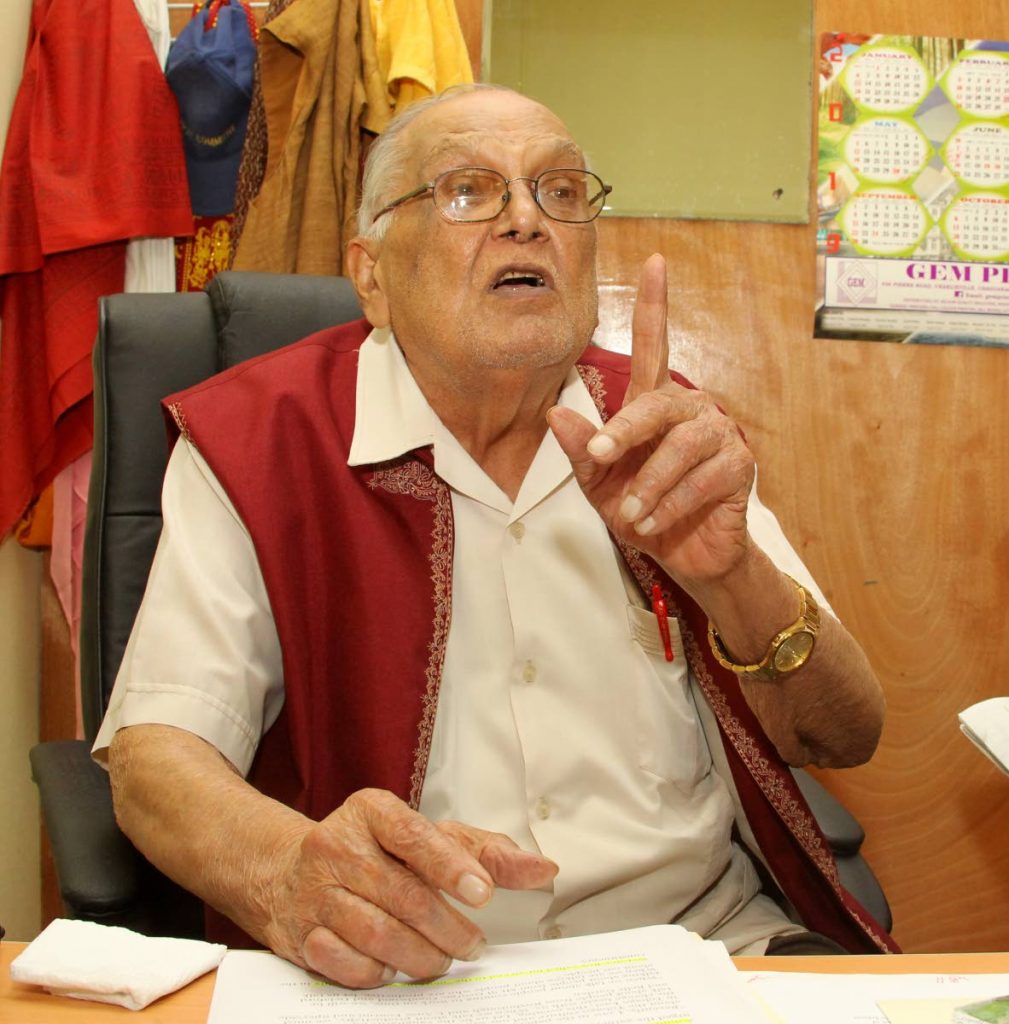Sat’s voice

EARLY national heroes of East Indian descent in TT include George Fitzpatrick, Francis Evelyn Mohammed, FEM Hosein, Timothy Roodal, Adrian Cola Rienzi, Ranjit Kumar, Simbhoonath Capildeo, Rudranath Capildeo, and Bhadase Sagan Maraj. A strong case now exists for the inclusion in this list of Sat Maraj who has died at the age of 88.
Maraj will be remembered for his outspoken voice and his advocacy. It was a mark of his achievements that whether one agreed with him or not one could never ignore him. As the leader of the Sanatan Dharma Maha Sabha, he oversaw historic legal action that changed the face of the country. Our highest national award was renamed the Order of the Republic of TT after Maharaj pointed out the inherent discrimination of the Trinity Cross.
Satnarayan Maharaj was born on April 17, 1931 at Chaguanas. By many accounts he was a very aggressive child and seldom came home from school without being in a fight that day. This fighting spirit, which can arguably be traced to his fiercely protective grandmother Deolatia, provided the blueprint for his adulthood. Sat’s father Sieupersad, a tailor, was also influential.
Though born in Chaguanas, Sat lived all over the country. At various points he resided in San Juan, Biche, Manzanilla, Champs Fleurs. He even migrated briefly to Guyana and formed a life for himself and his family in England before returning, at the request of his father-in-law Bhadase Sagan Maraj in 1971.
Before his entry into political activism, Maharaj was a rice farmer, teacher, manager of a movie theatre, saw-mill operator, dish-washer, accounts clerk, postman, civil servant, transport company manager, among other things. His broad experience contrasted sharply with his eventual single-mindedness and passion for promoting the interests of the East Indian community.
Bhadase Sagan Maraj died in October 1971, and Sat was elected secretary general of the Maha Sabha in 1977. Before all this, young Sat had, as a school teacher working for Canadian Missionary schools, experienced a pressure to convert from Hinduism to Christianity. His refusal resulted in discrimination, an experience that undoubtedly informed his later career.
As an advocate at the Maha Sabha he found his stride, becoming one of the most influential voices in the land. He oversaw a wide range of lawsuits which, over decades, held governments to account. One of these cases was a successful challenge alleging state discrimination in the granting of media licences.
For better or worse, Maharaj held passionate views and was a symbol of using one’s voice to fight back against oppression, wherever it originated. We disagreed with his stances on Tobago and on child marriage. Yet, no matter how polarising his views, one could always find common ground with his faith in democracy. In this regard, his was an example that leaders should emulate.


Comments
"Sat’s voice"